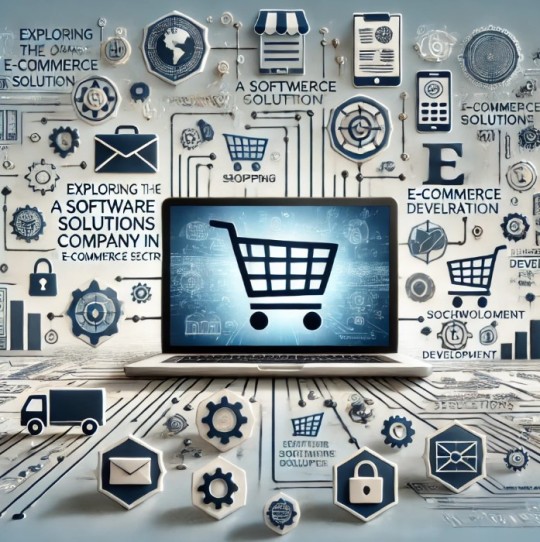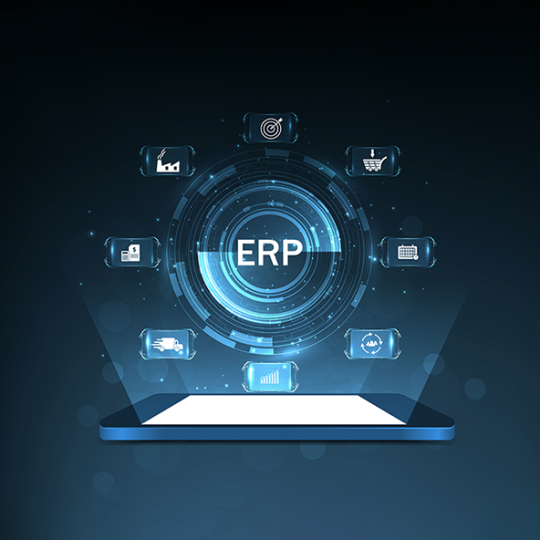#E-commerce Fulfillment Services Procurement
Explore tagged Tumblr posts
Text
E-commerce Fulfillment Services Procurement Intelligence: A Game-Changer for Businesses
The e-commerce fulfillment services category is expected to grow at a CAGR of 13.9% from 2023 to 2030. The increased number of online shoppers, particularly in emerging economies, and the proliferation of the e-commerce industry are driving the industry significantly. In addition, the rise in the number of e-commerce startups and the growth of small & medium-sized businesses across the globe has supported the market players in gaining momentum over the years. In 2022, the global market was dominated by the e-commerce shipping fulfillment service segment as the policies of trade liberalization and the agreements governing cross-border shipments have led to an expansion in trade and shipping.
Technological developments in fulfillment systems are enabling businesses to scale their operations efficiently. For instance, cloud-based solutions give businesses more flexibility when it comes to managing inventory, order processing, and fulfillment, enabling them to respond to shifting demand and seasonal peaks. In addition, the deployment of technological solutions such as AMRs (autonomous mobile robots) in warehouses makes fulfillment operations more efficient. Greater efficiencies can be achieved with system-directed workflows since the software that directs each AMR is able to "see" every order as well as the location of every other AMR device. These solutions can be scaled with ease as more AMRs can be added to mix on the requirement of higher capacity.
The category for e-commerce fulfillment services is moderately consolidated and less competitive, with top players holding over 60% of the market share. Establishing a fulfillment system requires significant investment initially, particularly in setting up a warehouse, getting equipments, deploying software, and other warehouse management technological solutions. In addition, logistics in fulfillment is typically complex and requires extensive knowledge and expertise that may not be possessed by all businesses. Therefore, the majority of e-commerce businesses delegate the task of fulfillment to third-party logistics companies rather than developing an in-house system as it may lead to a higher chance of mistakes including delivery delays, wrong orders, and inventory management issues.
Order your copy of the E-commerce Fulfillment Services Procurement Intelligence Report, 2023 - 2030, published by Grand View Research, to get more details regarding day one, quick wins, portfolio analysis, key negotiation strategies of key suppliers, and low-cost/best-cost sourcing analysis
Labor cost, warehousing, and transportation are the major key cost components of this category. Businesses in the category, generally use a value-based pricing model wherein the price of the fulfillment service depends upon inventory storage cost (by cubic foot or by pallet), pick and pack cost (by order or by unit), receiving cost (by shipment or by unit), kitting cost (by the kit or by hour) and customer support cost (either a flat rate or by hour). In addition, many fulfillment service providers can charge an extra fee for added services. For instance, if the time frame set forth in the initial contract with the merchant for warehouse storage is exceeded, suppliers charge back to its clients.
The global industry is dominated by the Asia-Pacific region as the highest utilizer of fulfillment services. The region is anticipated to maintain its dominance throughout the projected timeframe due to the rising penetration of the Internet and the potential opportunities provided by the largely unexplored markets in the region (rural areas and second-tier cities). In addition, nations in the region such as South Korea, Japan, and China represent a significant share of global online sales and are among the top exporters of goods. Thus, the region's e-commerce sector's promising growth prospects are a key driver of the expansion of the regional market. Furthermore, ensuring e-commerce integration (What level of compatibility the provider will have with the processes and business applications), assessing geographic distance of fulfillment center (delivery times are shortened because of the reduced delivery distance and closer location of the order fulfillment center to the final consumer), and negotiating prices & terms with suppliers are some of the best sourcing practices considered in this category.
E-Commerce Fulfillment Services Procurement Intelligence Report Scope
• E-Commerce Fulfillment Services Category Growth Rate: CAGR of 13.9% from 2023 to 2030
• Pricing growth Outlook: 5% - 10% (Annually)
• Pricing Models: Value-based pricing model, Fixed pricing model
• Supplier Selection Scope: Cost and pricing, Past engagements, Productivity, Geographical presence
• Supplier selection criteria: Years of experience, geographic presence, regulatory standards, location of fulfillment center, speed of delivery, end-to-end visibility, return management, packaging & branding option, customer support and others
• Report Coverage: Revenue forecast, supplier ranking, supplier matrix, emerging technology, pricing models, cost structure, competitive landscape, growth factors, trends, engagement, and operating model
Browse through Grand View Research’s collection of procurement intelligence studies:
• Social Media Management Procurement Intelligence Report, 2023 - 2030 (Revenue Forecast, Supplier Ranking & Matrix, Emerging Technologies, Pricing Models, Cost Structure, Engagement & Operating Model, Competitive Landscape)
• Video Post-Production Services Procurement Intelligence Report, 2023 - 2030 (Revenue Forecast, Supplier Ranking & Matrix, Emerging Technologies, Pricing Models, Cost Structure, Engagement & Operating Model, Competitive Landscape)
Key companies
• Amazon.com, Inc.
• eFulfillment Service, Inc.
• Ingram Micro, Inc.
• Rakuten Group, Inc.
• Red Stag Fulfillment, LLC
• ShipBob, Inc.
• Shipfusion Inc.
• Xpert Fulfillment
• FedEx Corporation
• United Parcel Service of America, Inc.
• Deutsche Post AG
Brief about Pipeline by Grand View Research:
A smart and effective supply chain is essential for growth in any organization. Pipeline division at Grand View Research provides detailed insights on every aspect of supply chain, which helps in efficient procurement decisions.
Our services include (not limited to):
• Market Intelligence involving – market size and forecast, growth factors, and driving trends
• Price and Cost Intelligence – pricing models adopted for the category, total cost of ownerships
• Supplier Intelligence – rich insight on supplier landscape, and identifies suppliers who are dominating, emerging, lounging, and specializing
• Sourcing / Procurement Intelligence – best practices followed in the industry, identifying standard KPIs and SLAs, peer analysis, negotiation strategies to be utilized with the suppliers, and best suited countries for sourcing to minimize supply chain disruptions
#E-commerce Fulfillment Services Procurement Intelligence#E-commerce Fulfillment Services Procurement#Procurement Intelligence#E-commerce Fulfillment Services Market#E-commerce Fulfillment Services Industry
0 notes
Text
Eighty6 was founded to streamline and facilitate the entire procurement process, thus changing the way the food service sector procure. We are an enterprise software solution that bridges the gap in fulfillment and communication between suppliers and buyers in the Food and Beverage sector.
We partner with suppliers and independent food distributors to improve and digitize their internal processes, providing leading technology solutions tailored to their needs.
2 notes
·
View notes
Text
The Difference Between a Dropshipping and Sourcing Agent
Dropshipping agents connect you directly to suppliers, enabling sales without inventory. They handle smaller orders and logistics, ensuring customer satisfaction by managing shipping efficiently. In contrast, sourcing agents facilitate bulk ordering by establishing strong supplier relationships, focusing on price negotiation and quality control. They also oversee logistics, including customs clearance, to enhance operational efficiency. While dropshipping is suited for low-volume sales with minimal upfront costs, sourcing agents are essential for scaling operations and negotiating better terms. Understanding these distinctions allows you to make informed decisions about which model best meets your business needs and objectives. Explore further to gain insights into optimizing your approach.


youtube
What Is Dropshipping?
Dropshipping is a modern e-commerce model that lets you sell products without holding any inventory. In this system, you act as a middleman between customers and suppliers, facilitating sales without the burdens of warehousing. When a customer places an order, the supplier handles packaging and directly ships the product to them, allowing you to focus on marketing and customer service. This model greatly reduces upfront costs, enabling you to scale your business quickly. Additionally, you can offer a wide range of products without the risk of unsold inventory. However, you must maintain strong communication with suppliers to guarantee timely deliveries and product quality, as your reputation hinges on customer satisfaction and the reliability of your supply chain.
Understanding Sourcing Agents
When you're ready to expand your business beyond dropshipping, understanding sourcing agents becomes essential. Sourcing agents play a critical role in helping you establish relationships with suppliers, especially for bulk orders. Unlike dropshipping agents, who typically handle smaller orders and direct-to-consumer shipping, sourcing agents focus on negotiating prices, conducting quality checks, and ensuring timely production. They also assist with logistics, including customs clearance, which is crucial for international shipments. By leveraging their expertise, you can streamline your procurement process and potentially lower your overall costs. As you scale your business, having a sourcing agent can lead to better product quality and more reliable supplier interactions, ultimately enhancing your operational efficiency and market competitiveness.
youtube
Key Functions of Dropshipping Agents
For online retailers looking to simplify their order fulfillment process, dropshipping agents offer invaluable support. These agents http://ziondropshipooxg636.trexgame.net/top-trending-dropshipping-products-for-success primarily connect you with suppliers, allowing you to source existing products without holding inventory. They handle smaller orders directly to consumers, streamlining shipping logistics and reducing your operational burdens. Additionally, dropshipping agents often assist with tax and duty calculations, ensuring compliance and transparency in pricing. They may provide warehousing services to lower unit costs, enhancing your profit
youtube

0 notes
Text
The Difference Between a Dropshipping and Sourcing Agent
Dropshipping agents connect you directly to suppliers, enabling sales without inventory. They handle smaller orders and logistics, ensuring customer satisfaction by managing shipping efficiently. In contrast, sourcing agents facilitate bulk ordering by establishing strong supplier relationships, focusing on price negotiation and quality control. They also oversee logistics, including customs clearance, to enhance operational efficiency. While dropshipping is suited for low-volume sales with minimal upfront costs, sourcing agents are essential for scaling operations and negotiating better terms. Understanding these distinctions allows you to make informed decisions about which model best meets your business needs and objectives. Explore further to gain insights into optimizing your approach.

youtube
What Is Dropshipping?
Dropshipping is a modern e-commerce model that lets you sell http://griffindropshipncer298.lucialpiazzale.com/unlocking-dropshipping-success-avoid-early-pitfalls products without holding any inventory. In this system, you act as a middleman between customers and suppliers, facilitating sales without the burdens of warehousing. When a customer places an order, the supplier handles packaging and directly ships the product to them, allowing you to focus on marketing and customer service. This model greatly reduces upfront costs, enabling you to scale your business quickly. Additionally, you can offer a wide range of products without the risk of unsold inventory. However, you must maintain strong communication with suppliers to guarantee timely deliveries and product quality, as your reputation hinges on customer satisfaction and the reliability of your supply chain.
youtube
Understanding Sourcing Agents
When you're ready to expand your business beyond dropshipping, understanding sourcing agents becomes essential. Sourcing agents play a critical role in helping you establish relationships with suppliers, especially for bulk orders. Unlike dropshipping agents, who typically handle smaller orders and direct-to-consumer shipping, sourcing agents focus on negotiating prices, conducting quality checks, and ensuring timely production. They also assist with logistics, including customs clearance, which is crucial for international shipments. By leveraging their expertise, you can streamline your procurement process and potentially lower your overall costs. As you scale your business, having a sourcing agent can lead to better product quality and more reliable supplier interactions, ultimately enhancing your operational efficiency and market competitiveness.

Key Functions of Dropshipping Agents
For online retailers looking to simplify their order fulfillment process, dropshipping agents offer invaluable support. These agents primarily connect you with suppliers, allowing you to source existing products without holding inventory. They handle smaller orders directly to consumers, streamlining shipping logistics and reducing your operational burdens. Additionally, dropshipping agents often assist with tax and duty calculations, ensuring compliance and transparency in pricing. They may provide warehousing services to lower unit costs, enhancing your profit

1 note
·
View note
Text
Streamlining Your Supply Chain with Rand Technology’s Cutting-Edge Solutions 🚚
In the fast-paced world of modern business, efficient supply chain management is a critical factor for success. Companies that can manage their logistics and streamline operations gain a significant competitive edge. Rand Technology specializes in providing advanced supply chain solutions that enhance operational efficiency, reduce costs, and improve service delivery. By optimizing your logistics supply, Rand Technology helps businesses stay agile, meet customer demands, and drive growth.

The Importance of Supply Chain Solutions 🛠️
Supply chain solutions involve the use of technology, tools, and processes to enhance the flow of goods, services, and information from the source to the end customer. These solutions cover everything from procurement and inventory management to distribution and transportation. In today’s increasingly complex global market, businesses need smart, integrated solutions to stay ahead of the competition.
At Rand Technology, we provide tailored supply chain solutions that help businesses at every stage of the process. From real-time tracking and demand forecasting to inventory control and route optimization, our solutions are designed to improve efficiency, reduce costs, and enable businesses to respond quickly to market changes.
Optimizing Logistics Supply for Greater Efficiency 🚛
Efficient logistics supply is essential for meeting customer expectations and staying competitive. Logistics involves the transportation, storage, and delivery of products, and any delay or inefficiency can significantly impact the bottom line. Rand Technology offers advanced logistics solutions to help businesses manage this process more effectively.
Tailored Solutions for Every Industry 🏭
Every industry has its own unique supply chain challenges, and Rand Technology understands the importance of tailoring solutions to meet specific needs. Whether you’re in e-commerce, retail, or manufacturing, we offer solutions designed to enhance your operations and support your business growth.
Retail: Retailers face the challenge of managing inventory and fulfilling orders quickly. Our real-time inventory tracking and demand forecasting tools help retailers stay ahead of customer demand, optimize stock levels, and reduce stockouts.
Manufacturing: For manufacturers, efficient procurement and material handling are key. Rand Technology provides tools to optimize supply chain visibility, reduce production delays, and ensure timely delivery of materials—helping to keep production lines running smoothly and avoiding costly downtime.
E-commerce: E-commerce businesses need efficient logistics to handle a high volume of orders and meet customer expectations for fast, accurate deliveries. Rand Technology’s solutions help e-commerce businesses streamline order fulfillment, optimize inventory management, and ensure timely delivery—all crucial for maintaining customer loyalty.

Key Benefits of Partnering with Rand Technology 🤝
When you partner with Rand Technology, you gain access to a suite of benefits that can take your supply chain to the next level:
Advanced Technology: We leverage the latest technologies, including AI-powered analytics, cloud-based platforms, and real-time tracking, to provide smart, data-driven solutions for your supply chain.
Comprehensive Solutions: From transportation and warehouse management to demand forecasting and inventory control, Rand Technology provides a full range of services designed to optimize every aspect of your supply chain.
Scalability: Whether you're a small business or a large enterprise, our solutions are scalable to grow with your business. We provide the tools you need to handle increased demand and expand your operations efficiently.
Cost Savings: Our solutions help you identify areas of inefficiency and cut unnecessary costs. By improving logistics, optimizing inventory, and reducing waste, you can significantly lower your operational costs and increase profitability.
Real-World Impact: Success Stories 📈
The effectiveness of Rand Technology’s supply chain solutions can be seen in the success of our clients. For example, one large retailer reduced operational costs by 18% after implementing our inventory optimization and demand forecasting tools. Another manufacturing client improved on-time delivery by 20% through better logistics planning and real-time tracking, leading to improved supplier relationships and greater customer satisfaction.
Ready to Optimize Your Supply Chain? 🌐
Are you looking to improve your logistics supply and streamline your entire supply chain? Rand Technology offers innovative solutions that can transform your business operations. From logistics optimization to inventory management, our technology-driven solutions are designed to help you stay competitive and achieve long-term success.

Contact Us 📞
Ready to take the next step in improving your supply chain? Get in touch with Rand Technology today to learn more about how we can help your business optimize operations and reduce costs.
Website: https://www.randtech.com/ 🌐
Let Rand Technology be your partner in building a smarter, more efficient supply chain.
0 notes
Text
YRC Shares Key Insights on Starting an Activewear Clothing Line: Mastering the Basics for Success - Part 3

YRC highlights key essentials for starting an activewear clothing line, focusing on MENA markets like UAE, Saudi Arabia, Egypt, with four new strategic insights
Empowering Retail & E-commerce businesses worldwide.”
— Nikhil AgarwalPUNE, MAHARASHTRA, INDIA, October 8, 2024 /EINPresswire.com/ -- In one of the previous media releases, retail and eCommerce consulting house, YourRetailCoach (YRC) highlighted some of the essentials to be carefully addressed in starting an activewear clothing line business with an emphasis on the MENA (Middle East and North Africa) region comprising countries like the UAE, Saudi Arabia, and Egypt. In this communiqué, YRC sheds light on four additional areas of planning and strategic significance concerning the same line of business.
Get advise for E-commerce retail business : https://www.yourretailcoach.ae/contact-us/
𝗜𝗻𝘃𝗲𝗻𝘁𝗼𝗿𝘆 𝗠𝗮𝗻𝗮𝗴𝗲𝗺𝗲𝗻𝘁
The quality of inventory management bears implications not only on operations but also on customer experience and brand image. This can be understood with a common experience. For many customers, finding a love-at-first-sight piece of fashion wear is no less than the occurrence of a cosmic syzygy. Finding the right design and material but not the right size can be frustrating. An apparel store can lose sales by just not having all the sizes available. Not having all the designs in stock can have the same result. Repeated disappointment is far more damaging to a brand than customers having little or no expectations from it.
In inventory management for activewear clothing businesses, some of the important areas of work are:
· Demand forecasting (accuracy, reliability, use of analytics) · Timely procurement, correctness in ordering and receiving, procurement planning · Maintaining the right stock levels, preventing overstocking and understocking · Implementation of quality checks and measures, and measures to prevent shrinkage · Space optimisation planning in stores and warehouses · Logistics optimisation (reduced logistical costs) · Periodical and surprise inventory audits · The use of inventory management software for 𝗷𝗲𝘄𝗲𝗹𝗹𝗲𝗿𝘆 𝗯𝘂𝘀𝗶𝗻𝗲𝘀𝘀𝗲𝘀 · Prudence in the selection and onboarding of suppliers · Development and implementation of 𝗦𝗢𝗣𝘀 ( https://www.yourretailcoach.ae/services/sop-development/ ) for inventory management (well-defined processes)
𝗧𝗲𝗰𝗵𝗻𝗼𝗹𝗼𝗴𝘆 𝗙𝗿𝗮𝗺𝗲𝘄𝗼𝗿𝗸
From the perspective of entrepreneurs and business owners of activewear 𝗰𝗹𝗼𝘁𝗵𝗶𝗻𝗴 𝗯𝗿𝗮𝗻𝗱𝘀 𝗮𝗻𝗱 𝗯𝘂𝘀𝗶𝗻𝗲𝘀𝘀𝗲𝘀, it is important to be in the knowing of the tools and technologies that are used in the business. Technologies in an apparel business can include a wide array of products from simple ones like POS systems, inventory management software, and RFID to those featuring in the ‘cutting edge’ list like AI (Artificial Intelligence) and 3D Printing. Today, technology also plays a vital role in shaping customer experience. For example, the design, features, and capabilities of eCommerce platforms (for online sales channels) can strongly affect the brand perception of customers. While most of the chatbots and virtual assistants may appear as too mechanical they are good at handling rudimentary queries and bringing down operational costs on this front. Also, many robotic and industrial automation tools are used in apparel warehouses and eCommerce fulfilment centres that give speed and accuracy to the movement of goods, quality control, order fulfilment, and logistics.
𝗢𝗺𝗻𝗶𝗰𝗵𝗮𝗻𝗻𝗲𝗹 𝗦𝘁𝗿𝗮𝘁𝗲𝗴𝘆 𝗳𝗼𝗿 𝗔𝗰𝘁𝗶𝘃𝗲𝘄𝗲𝗮𝗿 𝗖𝗹𝗼𝘁𝗵𝗶𝗻𝗴 𝗟𝗶𝗻𝗲
Different brick-and-mortar retail businesses may have different degrees of online capabilities. What is important here is having a solid connection between the offline and online touchpoints so that the benefits of a two-edged sword can be provided to customers in a reliable manner. For example, one apparel store may simply choose to have a search engine listing presence and another with a full-fledged eCommerce channel. The omnichannel requirement for the first store is to ensure that all the details provided are authentic, accurate, up-to-date, and actionable (e.g. two working phone numbers). For the second store with eCommerce capabilities, the omnichannel requirements are going to be much more elaborate like having the facility for online ordering and physical pick up for validation reasons or ensuring the availability of stock in outlets as per merchandise listed in the store’s online storefront.
𝗗𝗶𝗴𝗶𝘁𝗮𝗹 𝗠𝗮𝗿𝗸𝗲𝘁𝗶𝗻𝗴
Even if a business has no online sales channels, a certain degree of digital marketing is still necessary. Today, customers expect to find brands and businesses on online channels. They need to know the reviews and experiences of other people shared on search engines and social media. Having the required level of digital marketing (in a desirable form) serves as an instant solution to achieve the initial brand/business validation. With more concerted efforts in digital marketing for activewear clothing line, better results are possible:
· Quickly reaching out to a wider audience · Curated content for every segment based on demographics and interests · More economical than traditional advertising methods · Trackability of advertising and promotional campaigns, the scope of making adjustments · Social listening and social monitoring for better social media marketing · Customer support · Actionable content
𝗔𝗯𝗼𝘂𝘁 𝗬𝗼𝘂𝗿𝗥𝗲𝘁𝗮𝗶𝗹𝗖𝗼𝗮𝗰𝗵:
YourRetailCoach ( https://www.yourretailcoach.ae/ ) is a boutique retail and eCommerce consulting firm with over 10 years in the business of developing and delivering enterprise startup and management solutions. With a scaling global footprint, YRC has catered to over 500 clients in 25+ verticals. In activewear fashion business consulting, YRC offers planning and implementation services and solutions for business setup and growth and expansion endeavours.
For customised and quickly implementable solutions for activewear 𝗰𝗹𝗼𝘁𝗵𝗶𝗻𝗴 𝗹𝗶𝗻𝗲 𝗯𝘂𝘀𝗶𝗻𝗲𝘀𝘀 𝘀𝗲𝘁-𝘂𝗽, management, and expansion projects or to speak to one of YRC’s fashion retail business consultants, and Get advise for E-commerce retail business : https://www.yourretailcoach.ae/contact-us/
YRC Shares Key Insights on Starting an Activewear Clothing Line: Mastering the Basics for Success - Part 1 - https://www.einpresswire.com/article/749309554/yrc-shares-key-insights-on-starting-an-activewear-clothing-line-mastering-the-basics-for-success-part-1
YRC Shares Key Insights on Starting an Activewear Clothing Line: Mastering the Basics for Success - Part 2 - https://www.einpresswire.com/article/749638152/yrc-shares-key-insights-on-starting-an-activewear-clothing-line-mastering-the-basics-for-success-part-2
Rupal Nikhil Agarwal YourRetailCoach +91 98604 26700 [email protected] Visit us on social media: Facebook X LinkedIn YouTube
0 notes
Text
Exploring the Role of a Software Solutions Company in India in the E-commerce Sector
The e-commerce sector in India has witnessed exponential growth in recent years, revolutionizing the way businesses operate and consumers shop. This rapid digital transformation has created a demand for innovative software solutions to streamline operations, enhance customer experiences, and drive business growth. In this blog, we will delve into the crucial role of a software solutions company in India in shaping the future of e-commerce.

Understanding the E-commerce Landscape in India
The Indian e-commerce market is a dynamic and diverse ecosystem, encompassing a wide range of products and services. From online retail to digital marketplaces, the sector caters to millions of consumers across the country. The increasing penetration of smartphones and affordable internet access has further fueled the growth of e-commerce, making it a lucrative opportunity for businesses of all sizes.
The Role of a Software Solutions Company
A software solutions company in India plays a pivotal role in enabling the success of e-commerce businesses in India. By providing tailored software solutions, these companies help businesses overcome challenges, optimize processes, and achieve their strategic goals. Here are some key areas where software solutions companies make a significant impact:
1. E-commerce Platform Development
A robust e-commerce platform is the foundation of any online business. Software solutions companies develop customized platforms that are user-friendly, secure, and scalable. These platforms enable businesses to showcase their products, manage inventory, process orders, and handle payments efficiently.
2. Payment Gateway Integration
Seamless payment processing is essential for a successful e-commerce business. Software solutions company in India integrate secure payment gateways into e-commerce platforms, allowing customers to make payments using various methods, including credit cards, debit cards, net banking, and digital wallets.
3. Inventory Management
Effective inventory management is crucial to avoid stockouts and overstocking. Software solutions companies provide inventory management systems that help businesses track stock levels, monitor sales trends, and optimize procurement processes.
4. Order Fulfillment and Logistics
Efficient order fulfillment and logistics are critical for timely delivery of products. Software solutions companies develop order management systems that streamline the entire order fulfillment process, from order confirmation to shipment and delivery tracking.
5. Customer Relationship Management (CRM)
Building strong customer relationships is vital for long-term business success. CRM software solutions help businesses manage customer interactions, track purchase history, and provide personalized recommendations.
6. Data Analytics and Business Intelligence
Data-driven decision-making is essential for staying ahead of the competition. Software solutions companies provide data analytics tools that help businesses gain insights into customer behavior, market trends, and operational performance.
The Rise of Commercial Insurance Software Solutions in India
As the e-commerce sector continues to grow, so does the need for comprehensive insurance solutions. Commercial insurance software solutions in India are playing a vital role in protecting businesses from various risks, including property damage, cyberattacks, and product liability. These software solutions streamline insurance processes, improve claim management, and enhance customer satisfaction.
Indicosmic Infotech Ltd., a trailblazing technology provider since 2016, pioneers innovation in the insurance and automotive sectors. Advanced roadside assistance solutions, providing seamless support to customers & revenue generation for you.
Software solutions companies are the backbone of the e-commerce sector in India. By providing innovative and tailored solutions, these companies empower businesses to thrive in the digital age. As the e-commerce landscape continues to evolve, the demand for advanced software solutions will only increase.
0 notes
Text
ERP System
What is an ERP System?
An Enterprise Resource Planning (ERP) system is a software platform that integrates various business processes and functions into a unified system. It helps organizations manage and automate core business processes, providing a centralized framework for data and operations. ERP systems support areas such as finance, human resources, supply chain, manufacturing, and customer relationship management (CRM), among others.
Benefits of an ERP System
Integrated Processes: Centralizes information and processes, enhancing collaboration and communication across departments.
Improved Efficiency: Automates routine tasks, reduces manual work, and streamlines workflows, leading to time and cost savings.
Real-time Data Access: Provides immediate access to data, facilitating better decision-making and timely responses to changes.
Enhanced Reporting and Analytics: Offers powerful reporting tools that help analyze performance and monitor key performance indicators (KPIs).
Better Financial Management: Streamlines accounting, budgeting, and financial reporting, improving financial visibility and control.
Scalability: Can grow with the organization, accommodating increased data and process complexity without significant disruption.
Improved Customer Service: Centralized customer data allows for faster, more accurate responses to inquiries and improved service delivery.
Regulatory Compliance: Facilitates adherence to industry regulations and standards by providing necessary tools for documentation and reporting.
Inventory Management: Enhances inventory tracking, reducing excess stock and improving order fulfillment.
Cost Savings: Over time, efficiencies gained can lead to substantial reductions in operational costs.
Enhanced Collaboration: Breaks down silos by enabling departments to work together more effectively, sharing data and insights.
Customization and Flexibility: Many ERP solutions can be tailored to meet specific business needs, allowing for the implementation of relevant features.
Common Modules Included in an ERP System
Financial Management: Handles accounting, budgeting, financial reporting, and compliance.
Human Resources Management (HRM): Manages employee records, payroll, recruitment, and performance evaluations.
Supply Chain Management (SCM): Oversees inventory, procurement, order management, and logistics.
Customer Relationship Management (CRM): Manages customer interactions, sales tracking, and marketing campaigns.
Manufacturing: Supports production planning, scheduling, quality control, and product lifecycle management.
Project Management: Facilitates planning, execution, and monitoring of projects, including resource allocation.
Inventory Management: Tracks stock levels, orders, and deliveries, optimizing inventory turnover.
Sales and Marketing: Manages sales processes, order tracking, and customer engagement strategies.
Business Intelligence (BI): Provides analytical tools and dashboards for performance monitoring and strategic insights.
E-commerce Integration: Connects online sales channels with inventory and order management systems.
These modules can often be customized or expanded based on the unique needs of an organization, making ERP systems versatile solutions for businesses of all sizes.
0 notes
Text
2024, Dropshipping Still Holds Great Potential: FulfilmentPros, Your Ideal Choice
It's 2024, are you still watching dropshipping?
I believe you may have seen some influencers or small business owners on YouTube, TikTok or Instagram showing their stories of achieving economic freedom through dropshipping e-commerce business, and they have earned thousands of dollars in side income through their own direct sales stores. On TikTok, the dropshipping-related hashtag #dropshipping has reached 9.8 billion views, #shopify has reached 3.6 billion views, and #Aliexpress has reached 14.8 billion views. This shows that people's discussion about dropshipping continues to rise.
What is Dropshipping
Dropshipping is a retail fulfillment method in which sellers do not keep inventory of the products they sell. Instead, when sellers sell products using the dropshipping model, it purchases goods from third parties and sends them directly to customers. Therefore, sellers do not need to handle the products directly.
Compared with the traditional standard retail model, the biggest difference in Dropshipping is that merchants do not need to stock or keep inventory. Instead, sellers purchase inventory from third parties (usually wholesalers or manufacturers) based on order requirements and fulfill the orders by them.
Although some people think that dropshipping is outdated, the reality is that it is not. Dropshipping is still a promising model and provides an entry opportunity for small and medium-sized sellers who want to start a business at a low cost.
The latest data shows that the global dropshipping market is expected to reach US$301.11 billion by 2024 and is expected to expand to US$372.47 billion by 2025. Experts predict that by 2027, the valuation of the global dropshipping industry is expected to reach US$500 billion. These data are enough to prove that despite the fierce market competition, the dropshipping and dropshipping industries still have growth potential, and there are unlimited business opportunities for those companies that can adapt to market changes and adopt the right strategies.
However, the key to success in this competitive market is to understand the changing trends, take advantage of new technologies, and implement effective strategies. Looking at the search popularity of the word "dropshipping" through Google Trends, we can see that the dropshipping business model has seen significant growth in the past few years.

Although the Dropshipping model still provides low-risk, low-cost entrepreneurial opportunities for many e-commerce entrepreneurs in 2024, the key to sellers' success lies in whether they can adapt to the highly competitive global e-commerce environment and make innovative decisions in store operations. After all, this model also comes with many challenges and responsibilities. Successful Dropshipping depends not only on the selection of products and suppliers, but also requires effective marketing strategies and high-quality customer service to build and maintain customer trust.
2. FulfilmentPros: Your ideal dropshipping partner
Fulfilmentpros, a professional dropshipping agent based in China, is committed to providing a full range of services for each dropshipper.
(I) Rich service content
1. China procurement: Leveraging China's huge manufacturing advantages, we provide customers with rich product procurement resources.
2. Warehousing: Provide safe and reliable warehousing services to ensure that the goods are properly stored.
3. Transportation: Ensure that products can be delivered to customers efficiently and in a timely manner.
4. Quality inspection: Strict quality inspection process to ensure that every product sent out meets the standards.
5. Clear refund/re-shipping policy: Let customers and customers clearly understand the after-sales rules and reduce worries.
6. ERP system binding store: Through the binding of the ERP system and the store, efficient data management and convenient operation are achieved.
(II) Significant service advantages
1. High-quality communication
Each customer is equipped with 1-3 professional order follow-up personnel who have good English communication skills, can ensure that the information is responded to within 24 hours, and can quickly feedback the problem.
2. Efficient reissue/refund policy
For all orders that meet the refund policy, the money can be refunded to the invoice on the same day to ensure the customer's capital circulation efficiency.
3. Timeliness and cost-effectiveness
Order processing only takes 2-5 days, and the transportation time is 5-12 days. In addition, since both suppliers and logistics providers have VIP accounts, they can ensure speed while ensuring cost-effectiveness.
4. Transparent prices
The company charges a fixed commission, and all purchase discounts and logistics discounts will be displayed on the invoice simultaneously, so that customers can see the cost at a glance.
5. Clear invoices
Invoices are updated daily, including the COSG (cost) of each order, so that customers can accurately calculate the profit of the order.
6. Business flexibility
The company can formulate different cooperation plans according to the needs of different customers to meet diverse business needs.
7. Industry-leading comprehensive capabilities
The comprehensive capabilities in the industry are ranked in the top ten, with an old customer maintenance rate of more than 90%, 80% of new customers are introduced by old customers, and the average daily order volume of large customers can reach more than 800 orders.
In short, the dropshipping no-source model still has great potential in 2024. Whether you are a small startup or a mature enterprise, Fulfilment Pros is your preferred partner for all direct sales needs. It constantly optimizes its own services, from strengthening digital services to sustainable development practices, from meeting personalized customization needs to actively exploring emerging markets, all in order to better help your direct sales business develop in overseas markets. Choosing Fulfilment Pros means choosing a partner who can adapt to market changes and seize market opportunities with you.
0 notes
Text
Importance of ERP and CRM Integration for B2B/B2C E-Commerce
In the fast-evolving world of B2B and B2C e-commerce, businesses are constantly seeking ways to improve their operations, enhance customer experiences, and streamline internal processes. One of the most effective strategies for achieving these goals is the integration of Enterprise Resource Planning (ERP) and Customer Relationship Management (CRM) systems. This blog explores the importance of ERP and CRM integration for e-commerce businesses, highlighting key benefits and best practices.
ERP and CRM Integration
ERP systems are designed to manage and automate core business processes like inventory management, accounting, procurement, and supply chain operations. On the other hand, CRM systems focus on managing customer interactions, sales, and marketing processes. Integrating these two systems allows businesses to unify their data, providing a 360-degree view of both their operations and customer relationships.

Enhanced Customer Experience
The integration of ERP and CRM helps businesses deliver a personalized customer experience. For B2C e-commerce, understanding the buying patterns and preferences of customers is crucial. The real-time synchronization between CRM and ERP ensures that customer data from marketing campaigns, order history, and service interactions are all available for customer support teams. This integration leads to more tailored services, improved order accuracy, and quicker issue resolution.
Improved Inventory and Order Management
In the context of e-commerce, inventory management is a critical factor. Integrating ERP and CRM systems ensures that businesses have accurate, up-to-date information about their inventory levels, enabling seamless order fulfillment. This synchronization is particularly valuable for B2B e-commerce, where bulk orders require precise inventory tracking. ERP integration helps automate reorders, backorders, and shipping processes, reducing delays and stockouts.
Streamlined Sales and Marketing Efforts
For both B2B and B2C markets, ERP and CRM integration can enhance sales and marketing initiatives. CRM data can help identify high-value customers, while ERP systems ensure the availability of products to meet demand. Marketing campaigns can be better targeted when ERP insights about sales performance and product availability are shared with the CRM system. This unified data approach allows businesses to tailor their marketing strategies based on both customer behavior and operational capacity.
Boosted Operational Efficiency
Integrating ERP and CRM eliminates data silos between departments, leading to smoother internal operations. This streamlined communication between sales, customer service, and supply chain teams minimizes errors caused by manual data entry and ensures real-time access to critical business information. Automation of routine tasks such as invoicing, payment processing, and inventory updates can result in significant time and cost savings for businesses.
Better Analytics and Decision Making
One of the most significant advantages of ERP and CRM integration is improved reporting and analytics. By combining data from customer interactions and operational processes, businesses can gain deeper insights into customer behavior, sales trends, and supply chain performance. This holistic view supports more informed decision-making, helping businesses to optimize their e-commerce strategies and address challenges proactively.
Conclusion
For businesses in the B2B and B2C e-commerce landscape, integrating ERP and CRM systems is no longer optional but essential for sustained growth and competitiveness. The benefits of integration—ranging from enhanced customer experience to better decision-making—are critical in maintaining a smooth and efficient operation. As businesses continue to face increasing demand and customer expectations, ERP and CRM integration can be the key to unlocking their full potential.
0 notes
Text
Retail Supply Chain Consulting Firms and Crowdsourcing Last-Mile Delivery
Retail supply chain consulting firms are specialized companies that assist businesses in optimizing their supply chain operations. They provide expert advice and customized solutions aimed at streamlining processes, reducing costs, and improving overall efficiency. These firms typically employ professionals with extensive knowledge in logistics, inventory management, technology integration, and procurement strategies.
Why do businesses turn to these consultants? As supply chains become more complex with globalized sourcing, fluctuating consumer demand, and unpredictable disruptions like pandemics or natural disasters, it’s hard for internal teams to manage everything efficiently. That’s where consultants step in—they provide the expertise and tools necessary to tackle these challenges head-on.
The Growing Need for Retail Supply Chain Consultants
The retail market is continuously evolving, and this has increased the demand for supply chain consultants. A few trends driving this demand include:
E-commerce Boom: With the rise of online shopping, retailers need to optimize their fulfillment strategies.
Sustainability: Consumers are more conscious of environmental impacts, pushing businesses to reduce their carbon footprint.
Globalization: Sourcing products from international suppliers adds complexity to the supply chain.
Consultants offer insights into navigating these challenges while also positioning businesses for long-term success.
Key Services Offered by Retail Supply Chain Consultants
Consultants provide a wide range of services tailored to the specific needs of their clients. Some of the most common services include:
Process Optimization: Identifying bottlenecks and inefficiencies in the supply chain.
Inventory Management: Helping retailers strike a balance between stock availability and minimizing excess inventory.
Demand Forecasting: Predicting consumer demand using advanced analytics, which ensures the right products are available at the right time.
Supplier Management: Building strong relationships with suppliers to ensure timely deliveries.
Technology Integration: Implementing tools and software like warehouse management systems (WMS) and transportation management systems (TMS).
Crowdsourcing Last-Mile Delivery: A New Trend in Retail Supply Chain
One of the most exciting trends in retail supply chain management is crowdsourcing for last-mile delivery. But what exactly is last-mile delivery? It's the final step in the delivery process where a product reaches the customer’s doorstep. Crowdsourcing this step involves using independent contractors or gig workers to make deliveries.
Benefits of Crowdsourcing Last-Mile Delivery
Crowdsourcing last-mile delivery offers several advantages:
Cost Savings: By leveraging independent contractors, businesses can reduce costs associated with maintaining a full-time delivery fleet.
Faster Deliveries: Crowdsourcing allows retailers to meet same-day or next-day delivery expectations, especially in urban areas.
Improved Customer Experience: With faster and more flexible delivery options, customers enjoy a better overall experience.
Challenges of Crowdsourcing Last-Mile Delivery
While crowdsourcing offers many benefits, it also comes with its challenges:
Quality Control: Ensuring consistent service levels across a large pool of independent drivers can be difficult.
Managing a Distributed Workforce: Coordinating a decentralized network of gig workers requires robust systems and tools.
Regulatory Concerns: There are legal and insurance challenges tied to relying on third-party contractors for deliveries.
Choosing the Right Retail Supply Chain Consulting Firm
Selecting the right consulting firm can be critical to your success. Key factors to consider include:
Experience and Expertise: Look for firms with proven experience in retail supply chain optimization and crowdsourced delivery solutions.
Technology Capabilities: The right firm will help integrate modern technology into your supply chain for real-time data and better decision-making.
Client Reviews and Case Studies: Reviewing past successes can give you confidence in your choice.
Retail supply chain consulting firms offer businesses the expertise needed to optimize their supply chain operations, while crowdsourcing last-mile delivery is rapidly becoming a popular solution for improving delivery efficiency. By leveraging both strategies, retailers can reduce costs, improve customer satisfaction, and stay ahead in a competitive landscape. For original post visit: https://www.flexartsocial.com/blogs/15526/Retail-Supply-Chain-Consulting-Firms-and-Crowdsourcing-Last-Mile-Delivery
0 notes
Text

Choosing the Right Fulfilment Logistics Provider for E-commerce - DahNAY Logistics
Opting for Fulfillment Logistics in Ecommerce is crucial for online sellers. A trusted provider handles product procurement, warehousing, and order fulfillment, enabling sellers to focus on activities like dropshipping and online sales without direct product interaction. Choose a provider with proven expertise and experience for your fulfillment needs.
Explore our blog: Amazon Service Provider Network(SPN) 101: A Guide to Global Growth
Explore DahNAY’s Logistics Services: dahnay.com/services/
#dahnaylogistics#logisticsserviceprovider#supplychainmanegement#freightforwarders#customclearanceservice#fullfilmentlogisticsservice#ecommercelogistics#amzonfullfilmentservice#amazonserviceprovider#airfreightservice#seafreightservice#globallogisticsservice#timecriticalmanagement#endtoendlogistics#doortodoorlogisticsservice#import#export#supplychainmanagement#logisticsservice#endtoendlogisticsservice
0 notes
Text
Revolutionizing Supply Chains with Rand Technology’s Advanced Solutions 🚚
In today’s fast-paced business world, efficient supply chains are more critical than ever. Companies must ensure timely deliveries, effective inventory management, and cost control to stay competitive. That’s where Rand Technology comes in, providing innovative supply chain solutions that help businesses streamline their operations, optimize logistics supply, and improve overall performance.

What Are Supply Chain Solutions and Why Do They Matter? 🛠️
Supply chain solutions are a set of tools, strategies, and technologies used to optimize the flow of goods and services from suppliers to customers. Managing the entire supply chain efficiently is vital for businesses aiming to reduce costs, enhance customer satisfaction, and improve overall profitability.
At Rand Technology, the goal is simple: to provide end-to-end solutions that improve every aspect of the supply chain. By leveraging the latest technology and real-time data, Rand Technology helps businesses make smarter, faster decisions that drive operational efficiency and reduce unnecessary overhead.
Optimizing Logistics Supply for Better Results 🚛
Logistics supply is one of the most crucial parts of the supply chain. It involves the movement, storage, and delivery of goods across different channels. A small inefficiency in logistics can lead to delays, increased costs, and unhappy customers. That’s why Rand Technology focuses on optimizing logistics supply to ensure that businesses experience smoother, more reliable operations.
With advanced tools like real-time shipment tracking, inventory management, and route optimization, Rand Technology provides businesses with the visibility and control they need to stay ahead of potential disruptions. By reducing inefficiencies and streamlining delivery processes, Rand Technology helps companies cut costs, boost productivity, and enhance customer satisfaction.
Customized Solutions for Every Industry 🏭
No two industries are the same, and Rand Technology understands that every business faces unique challenges. Whether you're in retail, manufacturing, or e-commerce, their tailored supply chain solutions are designed to address your specific needs and drive operational excellence.

Key Benefits of Partnering with Rand Technology 🤝
By partnering with Rand Technology for your supply chain solutions, you gain access to a host of benefits that can elevate your business:
Cutting-Edge Technology: Rand Technology leverages the latest tools and technologies, such as AI-driven analytics, cloud platforms, and real-time tracking, to help businesses optimize their supply chains and make data-driven decisions.
Comprehensive Support: From transportation and warehouse management to demand forecasting and inventory control, Rand Technology offers a full range of services to optimize every facet of your supply chain.
Scalable Solutions: Whether you're a growing startup or an established global enterprise, Rand Technology’s solutions are scalable to fit your needs, helping you adapt and thrive as your business evolves.
Cost Efficiency: By streamlining logistics, reducing waste, and improving resource allocation, Rand Technology helps businesses cut costs and achieve higher profitability. Their solutions deliver measurable savings through enhanced operational efficiency.
Success Stories: Real-World Impact 📈
Businesses across industries have already realized the benefits of Rand Technology’s solutions. For example, an e-commerce retailer using Rand Technology’s real-time inventory system reduced their stockouts by 30% and improved order fulfillment accuracy. Similarly, a manufacturing client streamlined their procurement process and cut production downtime by 15%, resulting in better on-time delivery and increased customer satisfaction.
These real-world examples demonstrate how Rand Technology’s tailored supply chain solutions help businesses overcome challenges and improve efficiency, ultimately leading to long-term success.
Ready to Transform Your Supply Chain? 🌐
If you’re looking to optimize your supply chain, enhance your logistics supply, and improve overall operational performance, Rand Technology is the partner you need. With innovative solutions, industry expertise, and a commitment to customer success, Rand Technology can help your business thrive in today’s dynamic marketplace.

Contact Us 📞
Want to learn more about how Rand Technology can improve your supply chain? Reach out to us today for a consultation and discover how we can create a customized solution for your business.
Website:🌐https://www.randtech.com/
Don’t wait—take the first step toward a more efficient, cost-effective supply chain with Rand Technology!
1 note
·
View note
Text
Comprehensive Guide to ERP Software for Retail Industry

Retail ERP vs. Traditional ERP
A erp software for retail industry system is catered to the special processes of multi-channel or omnichannel retailers. On the other hand, a traditional best erp software for retail is outfitted for general business requirements in different industries, e.g. manufacturing or construction. In retail ERP software, the center modules developed are around the workflow of the retail industry.
Some erp software for retail, for example, Brightpearl, can be designed such that they are retail ERPs. When you are looking for a retail version of classic ERP, you are spoilt for choice. Examples of ERP and accounting systems are Acumatica, NetSuite, Microsoft Dynamics 365, SAP Business One, and QuickBooks POS, to name just a few, whose frontend can be integrated with QuickBooks Desktop accounting software.
It pays to buy Quickbooks products and services from a value-added reseller that possess the experience in POS and the level of retail expertise to ensure your QuickBooks retail solution is fine-tuned.
It is possible to fit into a retail and traditional ERPs with an add-on software that serves with purpose specifically for retailers. For Example, AP automation or global mass payments software, for retailers ; Tipalti .Software has enabled companies like Touch of Modern to effectively handle accounts payable and large payment workflows with a small team.
Retail ERP Benefits
The ten good things in a retail ERP are:
Real-time visibility reporting and payment processing
An integrated omnichannel system across the front and back ends
Centralized customer database
eCommerce and physical store integration with an automated POS
Demand forecasting capability
Intelligent procurement, replenishment, and supply chain management
Real-time inventory management
Dynamic pricing capability
Automation in processes for efficient cost savings
Data analytics to support data-driven decision making.
Retail ERP is a real-time, specially customized software system connecting and integrating business processes involved in retail operations. A retail ERP enables retailers to better streamline, automate, and manage front-end and back-office business processes. This is software specially customized for ERP that's designed to help retailers improve their bottom line.
Multichannel commerce involves driving sales through physical retail stores (brick-and-mortar), e-commerce, call centers, and other online sales channels. They may access one or more warehouses and rely on inventory management to fulfill the orders and manage returns.
Automate and Extend Your Retail ERP
Tipalti powers efficiency and enhanced functionality in accounts payable. For businesses, our touchless invoice processing solutions reduce your business expenses.
Best Retail ERP Software Solutions
The erp software for retail business are either specifically designed for the retail sector or part of the traditional ERP systems, add-on third-party integrations poised at elevating the ERP for retail operations.
ERP Systems That Can House Retail-Specific Needs
Some best available ERP systems for retailers include:
Brightpearl
Brightpearl – A review
Brightpearl is an omnichannel retail ERP software solution designed for retailers and wholesalers.
The company bills its software as a Digital Operations Platform that can process thousands of orders daily. Brightpearl is purpose-built retail ERP. It offers eCommerce integrations with BigCommerce, Magento, Shopify, Amazon, eBay, and even Walmart these are erp software for retail shop.
Stated differently, Brightpearl, the retail version of Sage, allows for:
Real-time data
Sales order management
Inventory management and demand planning
Shipping and fulfillment
Warehouse management
Retail accounting
Purchasing and supplier management
Workflow automation
Reporting and business intelligence
Built-in, pre-integrated third-party app solutions for new channels and functional tools
SAP Business One
SAP Business One is ERP software that functions in the cloud for small and mid-sized businesses. By augmenting the following functionality to the ERP software, retailers using SAP Business One get support for:
eCommerce and omnichannel
Back office, online, and in-store operations
Point of sale and payment processing
In-store and inventory management
Analytics and reporting
Acumatica Retail-Commerce Edition
Acumatica
This is Acumatica's retail and eCommerce ERP solution. It is a multi-channel, cloud-based software, and it is best branded as the 'Retail-Commerce Edition' by small and middle-market businesses. Acumatica offers 24/7 customer service as a core feature in ERP.
It has other features such as:
Financial management
CRM
Warehouse management
Sales Order Management
Customer Self-Service Portal
Reporting and data analysis tools
Inventory management
Purchase
0 notes